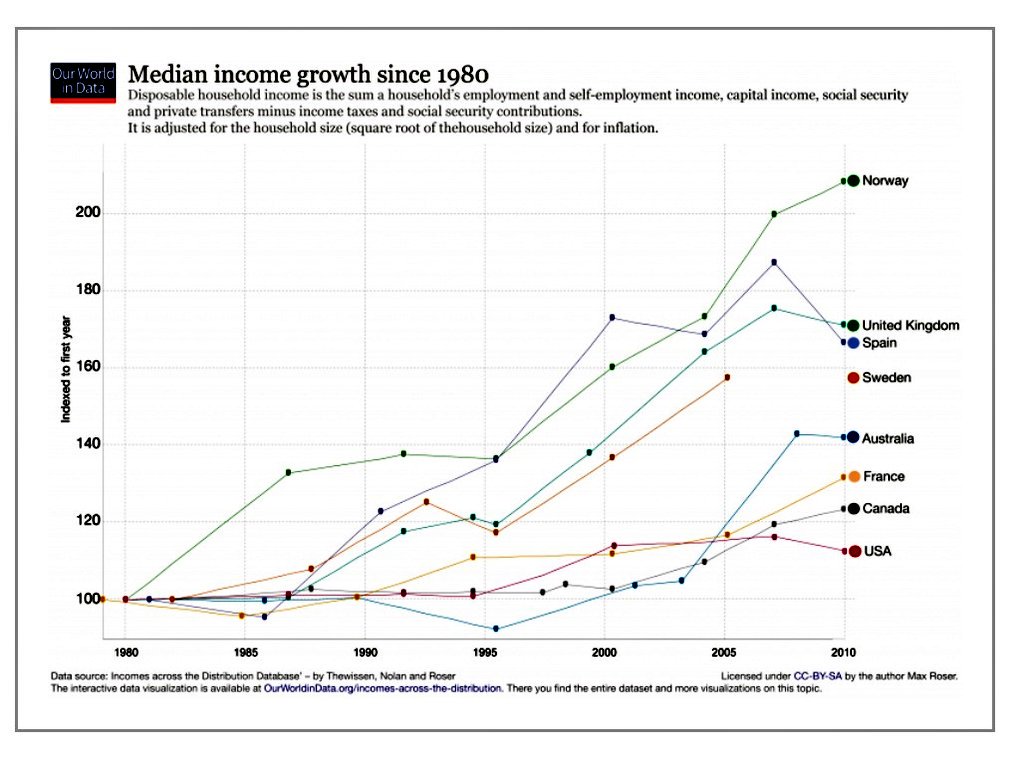Your chart is looking at growth over a more limited period of time which featured a time of exceptional income growth for the lower/middle classes (the 90s) as noted in the paper Mark Blyth is quoting (which is not authored by academics looking to 'sell books') that informs a third of the dataset vs a fourth with a measure of inflation that is limited in scope, and fails to consider inflation of things such as healthcare and education which have both run rampant in the United States.
Even in the case of your own numbers over the same period of time that considers more limited inflation factors, we're looking at a mere $1251.25 or 2% increase from 1979 ($58,887.47) to 2016 (the same range as studied in the paper) $60,138.72. 2% over 37 years; a pathetic annualized 0.05% YoY increase.
2020 numbers aren't finalized yet (and suffer from potential data skew due to response bias
https://www.cnbc.com/2020/09/15/incomes-rose-in-the-us-last-year-but-a-closer-look-reveals-little-to-cheer-about.html#:~:text=The real median household income,U.S. Census Bureau released Tuesday ), so the latest reliable data we can pull is 2019 which is $64,201; a higher but still low $5,313.53 difference, or a pitiful 9% real increase over 40 years; a still laughable 0.216% annualized increase, lol.
We're talking serious stagnation at a bare minimum.



